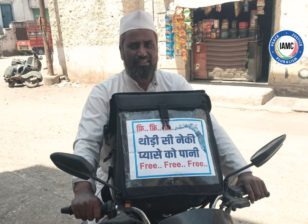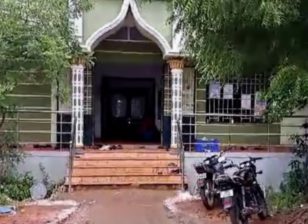Amid azan row, Maharashtra village shows the way in communal harmony
The predominantly Hindu village of Dhasla-Pirwadi passes resolution not to remove the loudspeaker from the lone mosque
Amid the row over azan and loudspeakers in mosques, a predominantly Hindu village in Maharashtra has unanimously passed a resolution not to remove the loudspeaker from the lone mosque in the village. The villagers said that azan was a part of the daily routine and no one in the village was troubled by it.
Dhasla-Pirwadi is a group gram panchayat in Jalna district in the Marathwada region of Maharashtra. Its population is around 2,500, including around 600 Muslim families. On April 24, a gram sabha was organised to mark the Panchayati Raj Day where villagers unanimously passed the resolution not to remove the loudspeaker from the mosque.
“We villagers belong to all castes. There are around 600 Muslim families here. We have been living in peace and harmony for years and no matter what politics is being played across the country, we decided that it should not impact our relations and traditions,” said Ram Patil, sarpanch of the village.
“ Azan has become a way of life for villagers based on which everybody goes on doing his or her routine chores. The villagers start working after the morning azan and take lunch break after the afternoon one at 1. 30 p.m. The evening azan at 5 p.m. signals the end of the day’s work, the one at 7 p.m. marks the time for dinner and then after the last azan at 8.30 p.m. everybody goes to sleep,” the resolution said.
It added that Zahir Beg Mirza, the maulavi at the mosque, had even told the gram sabha that in case of any objection the volume of the loudspeaker would be lowered.
Mr. Patil said villagers always participated in events in every household irrespective of caste or religion. In a bid to maintain communal harmony, the villagers had asked a Muslim youth to hoist the saffron flag at the Mahadev temple during the week-long religious festivities.
Asked whether they were prompted by political parties to pass this resolution, Mr. Patil said the intention was to keep the village distant from the “poisonous politics” being played outside. “We do have our political beliefs but we prefer to keep our village out of all of this,” he added.
This article originally appeared in The Hindu




